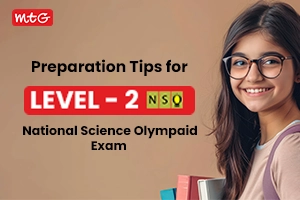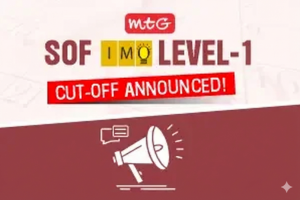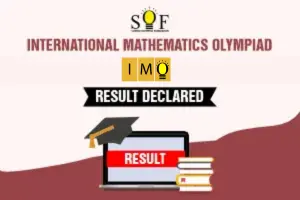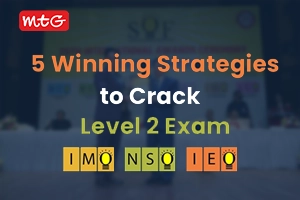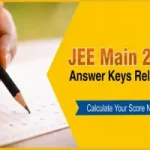
Competing in the SOF International English Olympiad (IEO) can be daunting: a vast syllabus, unfamiliar question formats, and strict time constraints often leave students feeling overwhelmed. Whether you’re in Class 1 or Class 12, mastering each section—Grammar, Vocabulary, Comprehension, Error Spotting, and Creative Writing—requires a targeted approach. This article shares actionable SOF IEO section-wise tips designed to plug learning gaps, build confidence, and help you excel. You’ll discover how to break down complex topics, practice effectively with MTG’s IEO-focused resources, and sharpen reasoning skills through Higher-Order Thinking (HOTS) drills. Let’s dive into a structured roadmap that addresses common problems and transforms them into concrete solutions.
Why Section-wise Preparation Matters
Every SOF IEO paper tests distinct skills. Focusing on each section separately helps you:
- Identify Weak Areas Early: Pinpoint specific grammar rules or vocabulary themes that need reinforcement.
- Optimize Time Management: Learn how much time to allocate per section based on question weight and difficulty.
- Build Targeted Strategies: Adopt techniques—like skimming passages for comprehension or underlining keywords—that work only for certain question types.
- Track Progress Precisely: Monitor your performance section by section to adjust your study plan dynamically.
By adopting a section-wise mindset, you’ll convert a bulky syllabus into manageable study chunks, ensuring no concept is left behind.
Check out – How to score Full Marks in IEO Level 2 Reading Comprehension and Grammar Sections
SOF IEO Section-wise Tip 1: Strengthening Grammar Foundations
Problem: Many students lack a solid grasp of advanced grammar rules—tenses, subject-verb agreement, prepositions, and modals—which can cost valuable marks in fill-in-the-blanks and error-spotting questions.
Solution:
- Start with a Comprehensive Guide: Use the IEO Workbook & Prep-Guide Combo (MTG’s 3-in-1 combo for each class) to review detailed rules, accompanied by illustrative examples.
- Create a “Grammar Cheat Sheet”: Summarize key rules (e.g., subordination vs. coordination, active vs. passive voice) on one page for quick revision.
- Practice in Short Bursts: Tackle 5–10 grammar questions daily from MTG’s Olympiad Workbook to reinforce rules consistently.
- Error-Spotting Drills: Maintain an error log—note each mistake, write the rule next to it, and revisit every week.
Practical Tip: Set a timer for 5 minutes and attempt 8 grammar questions. Gradually reduce time as accuracy improves.
Relevant MTG Resources:
- International English Olympiad (IEO) Workbook for chapter-wise exercises.
- Olympiad Prep-Guide for visual aids—tables and flowcharts that simplify complex grammar concepts.
SOF IEO Section-wise Tip 2: Expanding and Retaining Vocabulary
Problem: Limited vocabulary makes comprehension passages and fill-in-the-blanks challenging, especially when context clues are scarce.
Solution:
- Build Thematic Word Lists: Divide vocabulary into categories—academic words, idioms, phrasal verbs, and commonly confused words. Use MTG’s Olympiad Prep-Guide to find curated word lists aligned with past IEO trends.
- Use Flashcards and Spaced Repetition: Create digital or physical flashcards for 10 new words daily. Review older cards on days 3, 7, and 14 to cement retention.
- Contextual Practice: Read a short passage from MTG’s Previous Years’ Papers (10 PYQs + 2 Model Tests per class) and underline unfamiliar words. Guess meaning from context before checking a dictionary.
- Daily “Word of the Day”: Introduce a new word at breakfast time and challenge classmates or family members to use it in conversation.
Practical Tip: Whenever you solve a comprehension passage, circle any tricky word. Later, add it to your flashcard deck with definition and an example sentence.
Relevant MTG Resources:
- IEO Previous Years’ Papers (part of the 3-in-1 combo) for real exam-level passages and vocabulary-rich contexts.
- Olympiad Prep-Guide for visual vocabulary aids—mind maps connecting synonyms and antonyms.
SOF IEO Section-wise Tip 3: Mastering Reading Comprehension
Problem: Long passages and inferential questions can be intimidating under time pressure. Students often read line by line, losing sight of the main idea.
Solution:
- Practice Active Skimming & Scanning: Train yourself to read the first and last sentences of each paragraph, then skim for keywords. Practice this on 3–4 passages per week from MTG’s IEO Workbook.
- Annotate the Passage: Underline topic sentences and jot down a one-line summary in the margin. This builds a quick mental roadmap for answering questions.
- Answer Question Stems First: Glance at the questions before reading. If a question asks about “main idea,” you know to focus on introductory and concluding sentences.
- Map Question Types to Strategies:
- Fact-Based Questions: Scan for dates, names, and explicit details.
- Inference Questions: Look for implied meanings—pause and rephrase the sentence in your own words.
- Vocabulary-in-Context Questions: Identify the sentence containing the word, then use context clues to choose the best meaning.
Practical Tip: Time yourself: Spend no more than 12 minutes on a 300-word passage and its 8–9 questions. Review which question took longest, then refine your skimming technique accordingly.
Relevant MTG Resources:
- International English Olympiad (IEO) Workbook for class-specific comprehension passages.
- Previous Years’ Papers (part of the combo) to familiarize yourself with actual IEO passage lengths and difficulty levels.
SOF IEO Section-wise Tip 4: Excelling in Error Spotting & Sentence Correction
Problem: Error spotting questions test nuanced understanding of subject-verb agreement, parallelism, and idiomatic usage. A minor oversight can result in lost marks.
Solution:
- Compile Common Error Patterns: From MTG’s IEO Prep-Guide, list out typical error categories—punctuation, article misuse, dangling participles, etc.
- Targeted Practice Sets: Use the IEO Workbook to solve 10 error-spotting questions daily. After each set, cross-check explanations and note recurring mistakes.
- Peer Review Sessions: Pair up with a friend or classmate; exchange papers and identify errors in each other’s writing. This external perspective often reveals patterns you miss.
- Mini “Error Hunts”: Take five random sentences from a newspaper or class notes and deliberately insert one grammatical error. Swap with a partner for them to spot.
Practical Tip: Under time constraints, focus first on options that obviously violate rules you know well (e.g., “Their going to the market” vs. “They’re going…” for apostrophe misuse).
Relevant MTG Resources:
- Olympiad Prep-Guide for tabular breakdowns of common error types.
- IEO Workbook for structured, section-wise correction exercises.
Important – SOF Olympiad 2025-26 Exam Dates, Preparation Strategy, and More
SOF IEO Section-wise Tip 5: Developing Creative Writing Skills
Problem: Creative writing prompts—like short essays or letter writing—demand clarity, coherence, and originality. Many students struggle to organize ideas under time constraints.
Solution:
- Understand the Format: Review MTG’s IEO Previous Years’ Papers to identify recurring themes (e.g., “My Favorite Hobby,” “Importance of Reading”).
- Practice Mind Mapping: Before you start writing, spend one minute jotting down keywords and phrases—this helps structure your thoughts logically.
- Adopt the “PEEL” Paragraph Technique:
- P: Point—state your main idea (e.g., “Reading broadens one’s perspective”).
- E: Evidence—include a fact, quote, or personal anecdote.
- E: Explanation—connect the evidence to your point.
- L: Link—transition to the next paragraph smoothly.
- Use a Timer: Allocate 10 minutes for drafting (mind map and first draft), 3 minutes for revising grammar and flow, and 2 minutes for proofreading.
- Peer and Self-Review: Read your own piece aloud—this catches awkward phrasing. Exchange essays with a friend to get feedback on clarity and creativity.
Practical Tip: Maintain a “Writing Ideas Notebook”—jot down prompts or interesting quotes daily; revisit them when you need inspiration.
Relevant MTG Resources:
- IEO Prep-Guide for sample creative prompts and annotated high-scoring answers.
- IEO Workbook’s “Express Yourself” section for regular writing practice.
SOF IEO Section-wise Tip 6: Time Management and Exam Strategy
Problem: With five distinct sections and only 60 minutes (Level 1) or 60 minutes and 9 additional minutes for Level 2, students often misallocate time, leaving some sections incomplete.
Solution:
- Analyze Past Patterns: From MTG’s Previous Years’ Papers, note how many questions each section carries and approximate time per question. For example:
- Grammar & Vocabulary: 20–25 questions (15–18 minutes)
- Reading Comprehension: 15–20 questions (15–18 minutes)
- Error Spotting: 10–12 questions (10 minutes)
- Creative Writing or Essay: 1–2 questions (10–12 minutes)
- Sectional Mini-Quizzes: Simulate exam timing by setting aside 15 minutes for a 20-question grammar quiz, 15 minutes for a comprehension set, etc. Record your scores and adjust time allotment until accuracy and speed align.
- “Skip and Return” Technique: If a question seems ambiguous or too time-consuming (like a difficult vocabulary question), mark it, move on, and revisit after completing easier ones.
- Last-Minute Revision: Allocate final 5 minutes to flag questions you answered hastily. Quickly revisit them to reduce avoidable errors.
Leveraging MTG’s IEO-Focused Products as Part of Your Strategy
While practicing section-wise, it’s essential to use resources tailored specifically for the SOF IEO exam. MTG’s carefully curated materials ensure alignment with the latest IEO syllabus and question trends:
- IEO Workbook (Class-Wise): Provides chapter-wise exercises for Grammar, Vocabulary, Comprehension, and Writing. Regular practice here builds familiarity with question styles.
- IEO Prep-Guide: Incorporates visual aids—tables, charts, and annotated passages—making complex rules easier to grasp. Includes “Olympiad Bite” factoids and HOTS questions to develop critical thinking.
- IEO Previous Years’ Papers: Ten years of solved papers plus 2 model test papers for each class. These real-exam questions highlight frequently tested topics, so you can focus your revision efficiently.
Combining these three in a single 3-in-1 combo (MTG’s “Olympiad Workbook, Prep-Guide, Previous Years’ Papers”) ensures a multi-dimensional approach: theory, practice, and real-exam simulation—all in one package.
Rapid Revision Checklist Before Exam Day
With sections and strategies in place, use this final checklist to cement your preparation:
- Grammar & Vocabulary Review
- Revisit your “Grammar Cheat Sheet” and flashcard decks.
- Solve 10 mixed grammar and vocab questions from MTG’s Workbook.
- Comprehension Drills
- Read one 300–350-word passage, practice skimming, and answer all questions within 12 minutes.
- Compare performance against past mock scores.
- Error Spotting Warm-Up
- Solve a 10-question error-spotting set, focusing on rules you’ve historically found tricky.
- Review explanations in the Prep-Guide to reinforce patterns.
- Creative Writing Practice
- Write a short paragraph (100–120 words) on a familiar topic—use PEEL structure.
- Ask a friend or teacher to provide feedback on coherence and grammar.
- Timed Mock Test
- Attempt one full-length model test from MTG’s Previous Years’ Papers under strict timing.
- Note areas where time slipped—adjust your sectional time allocation as needed.
By following this checklist 2–3 days before the exam, you’ll have a clear sense of strengths and remaining gaps.
FAQs on SOF IEO Section-wise Tips
Q1: What are the best strategies to improve IEO vocabulary quickly?
A: Start with themed word lists (e.g., academic words, idioms) and use flashcards with spaced-repetition. Read short IEO-level passages, circle unfamiliar words, and guess meanings from context before checking a dictionary. Spend 10–15 minutes daily on new words and review older ones every few days.
Q2: How do I manage time effectively in the SOF IEO exam?
A: Allocate time per section based on question weight—roughly 15–18 minutes each for Grammar, Vocabulary, and Comprehension, 10–12 minutes for Error Spotting, and 10–12 minutes for Creative Writing. Practice “skip and return” for tough questions, and simulate full tests under strict timing to build speed and accuracy.
Q3: What’s the most efficient way to practice IEO grammar questions?
A: Use a focused grammar workbook (like MTG’s IEO Workbook) to solve 5–10 questions daily. Maintain an error log—note each mistake, write down the rule, and revisit those entries weekly. Short, timed drills (5–8 minutes for 8–10 questions) help increase both speed and precision.
Q4: How can I boost comprehension skills for IEO passages?
A: Practice active skimming—read the first and last sentences of each paragraph, then scan for keywords. Before reading fully, glance at question stems so you know what details to look for. Annotate passage margins with one-line summaries of each paragraph to create a quick roadmap for answering questions.
Q5: What’s the best way to tackle error-spotting questions?
A: Compile common error patterns (e.g., subject-verb agreement, punctuation) and review them regularly. In timed drills, underline suspicious parts of a sentence first, then apply rules. Exchange papers with a peer for “error hunts.” Regular practice with targeted exercises ensures you recognize mistakes faster.
Q6: How should I practice creative writing for the IEO exam?
A: Use the PEEL technique for structured paragraphs: Point (main idea), Evidence (example or fact), Explanation (connect evidence to point), and Link (transition). Spend 10 minutes drafting and 5 minutes revising. Maintain an “Ideas Journal” of prompts and quotes to spark creativity when you start writing.
Q7: Are MTG’s IEO resources aligned with the latest exam syllabus?
A: Yes. MTG’s IEO 3-in-1 combo (Workbook, Prep-Guide, Previous Years’ Papers) covers the current SOF IEO syllabus, offers Olympiad-style practice sets, visual aids, HOTS drills, and ten years of solved papers plus model tests—ensuring you practice authentically for 2025–26.
Q8: How can I track my progress section-wise in IEO preparation?
A: Use MTG’s sectional mini-quizzes and record scores for Grammar, Vocabulary, Comprehension, Error Spotting, and Creative Writing separately. Maintain a simple spreadsheet with date, section, score, accuracy percentage, and notes on weak topics. Review every week to adjust your study focus.
Conclusion
Excelling in the SOF IEO demands more than rote memorization—it requires strategic, section-wise preparation that targets individual skills. By strengthening your grammar fundamentals, expanding vocabulary, mastering comprehension techniques, honing error-spotting accuracy, and developing coherent writing habits, you’ll transform IEO challenges into stepping stones. Integrate MTG’s IEO-focused products—Workbook, Prep-Guide, and Previous Years’ Papers—into your study routine for a comprehensive practice regimen. Remember: consistency, periodic self-assessment, and a positive mindset are your keys to success.
Ready to put these SOF IEO section-wise tips into action? Begin your focused practice today and watch your confidence soar as you gear up for the International English Olympiad!



